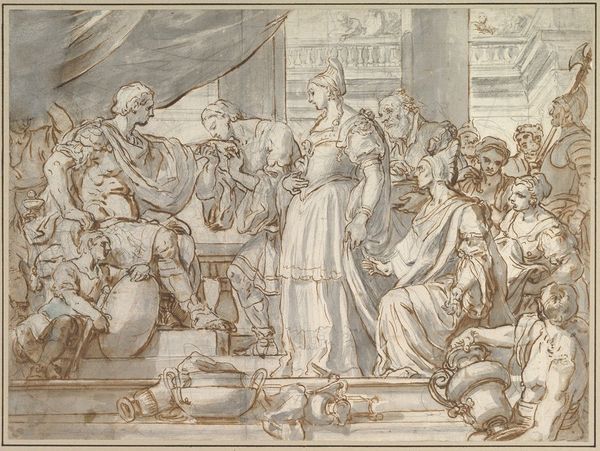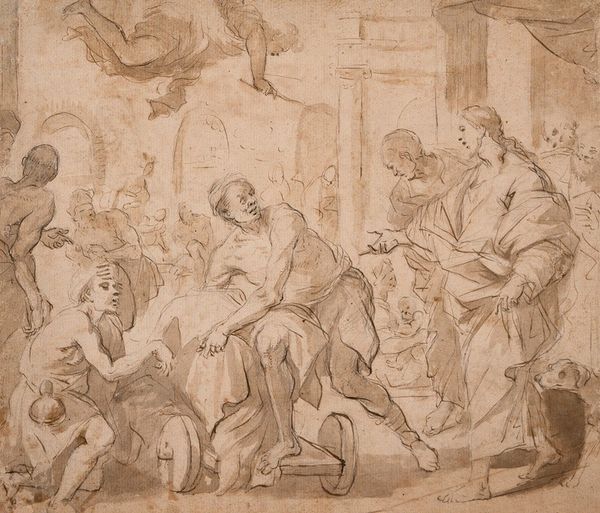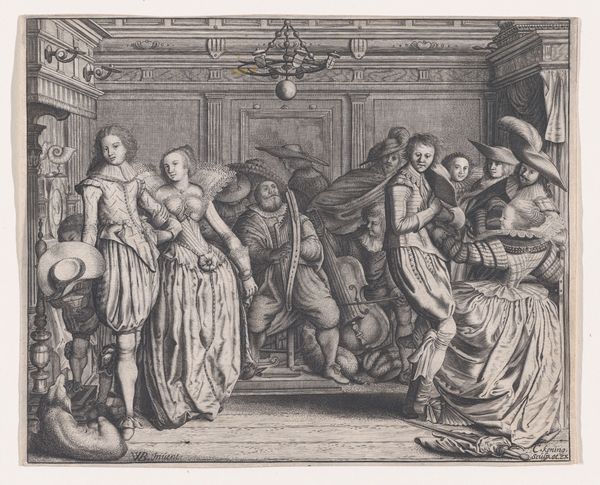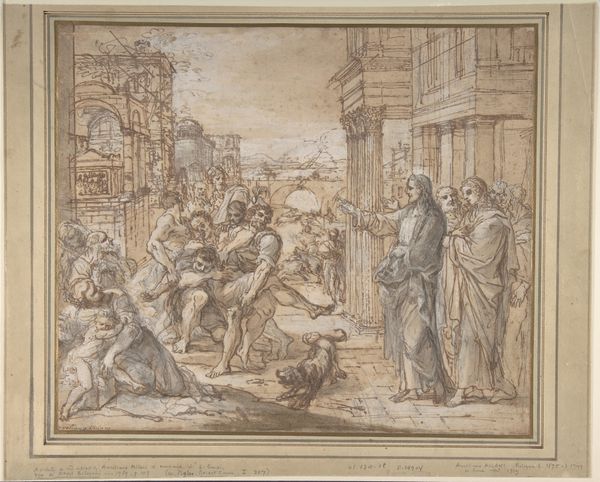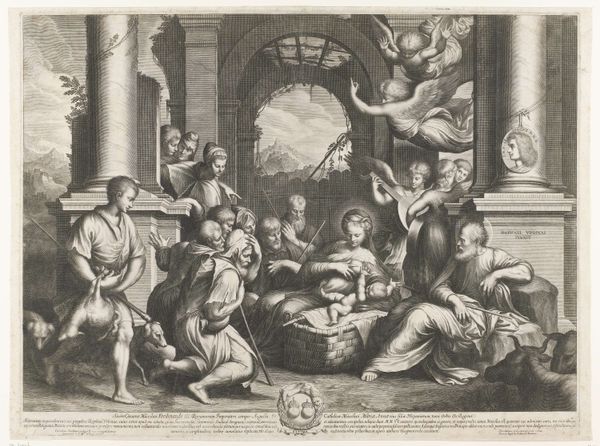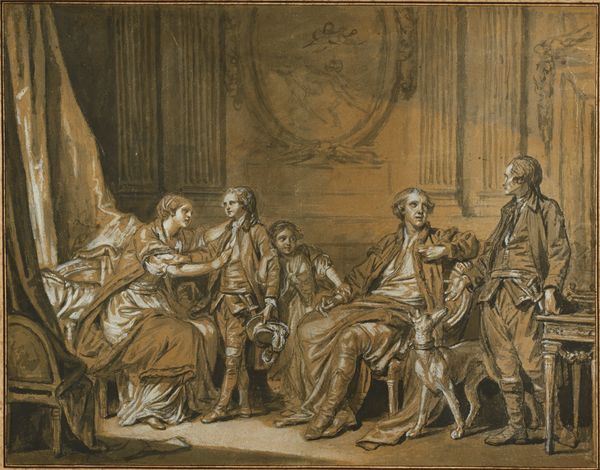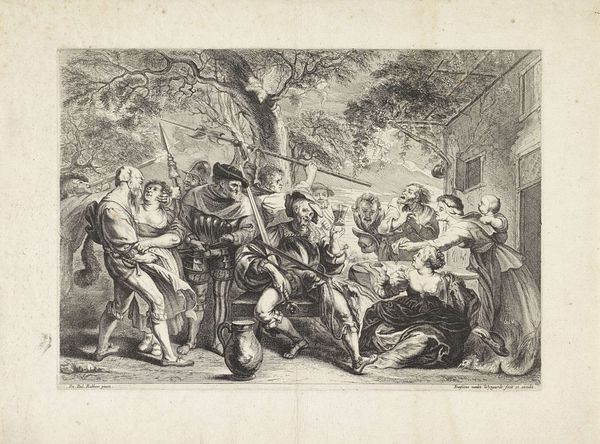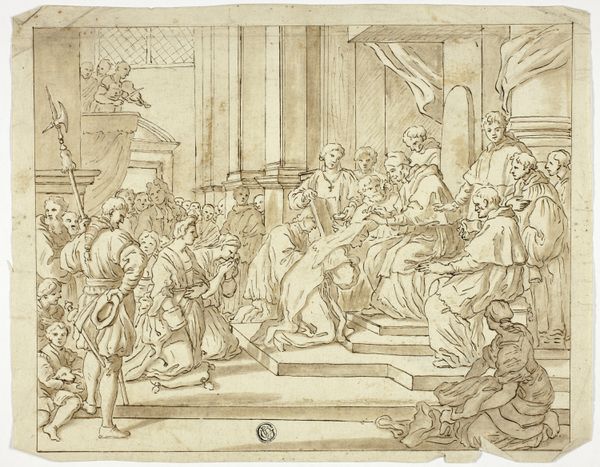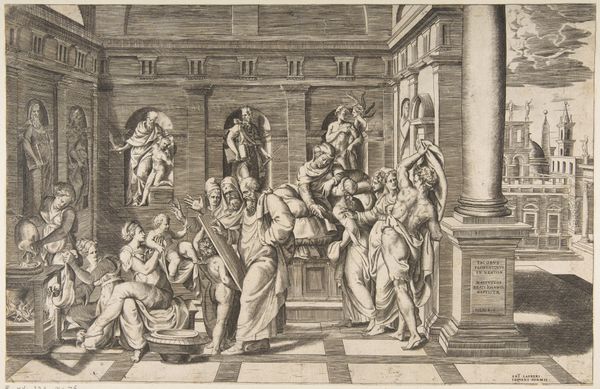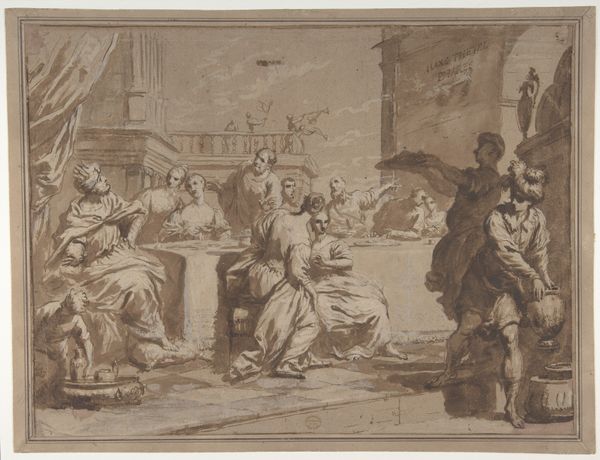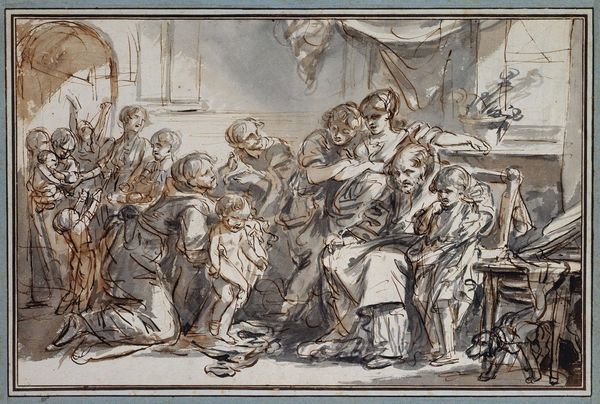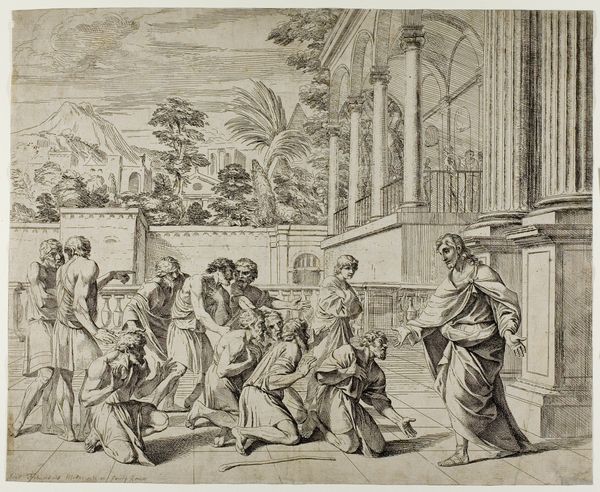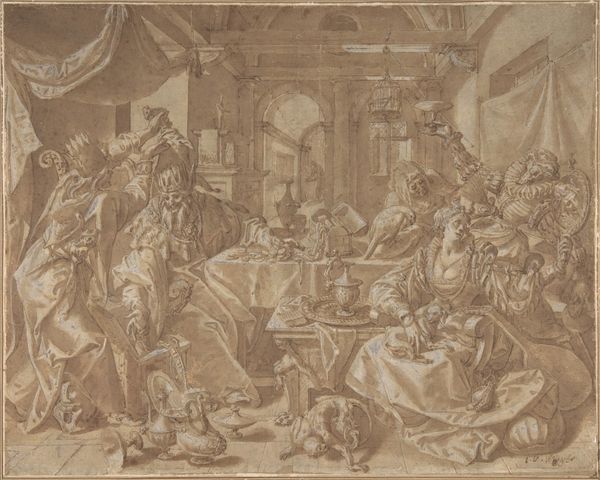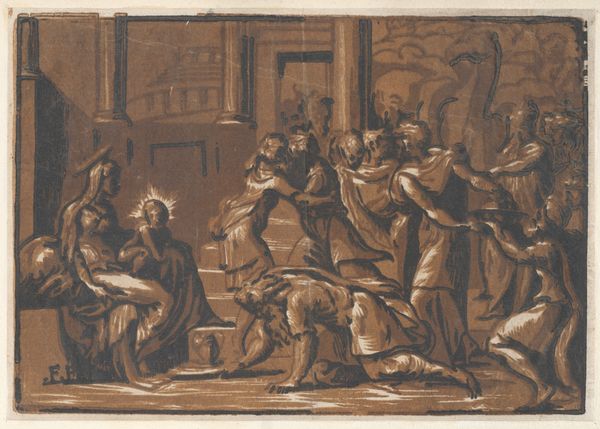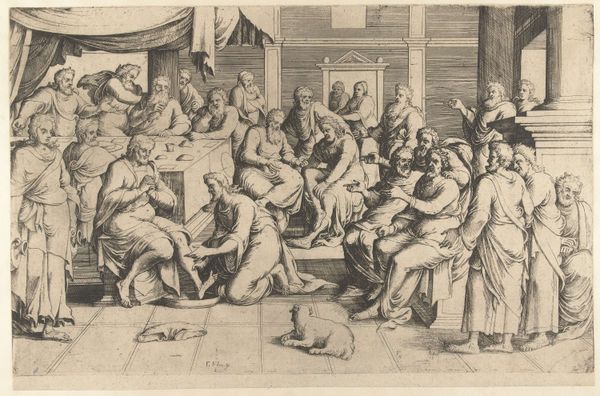
painting, oil-paint, oil-on-canvas
#
narrative-art
#
baroque
#
painting
#
oil-paint
#
figuration
#
oil painting
#
history-painting
#
oil-on-canvas
#
watercolor
Dimensions: 38 3/4 x 52 7/8 in. (98.43 x 134.3 cm) (canvas)
Copyright: Public Domain
Curator: What strikes you first about this scene? The light seems almost to embrace the figures. Editor: Absolute chaos, wouldn't you say? A flurry of bodies, a riot of colors... But also, yes, a sense of coming in from the cold, from hardship into a zone of… privilege. Which makes sense given it’s a depiction of The Prodigal Son, painted sometime in the 1720s or 30s, and now housed right here at the Minneapolis Institute of Art. Curator: Chaos can be beautiful, can’t it? Look at the sheer theatricality! Ghezzi truly understood human emotion and captured its raw immediacy. There's this deep sense of joy, but you also sense a life that was probably, let’s be honest, difficult, unacknowledged. To come back from that takes guts! I wonder about all the lives lived here, you know? Editor: And who has access to that unacknowledged life and to grace. Think about the layers of societal control and privilege represented – the patriarchy embedded in the parable itself, the implicit bias of familial acceptance versus societal exclusion... This scene, while celebratory, also reinforces certain power structures. A dog looking up; does it see this narrative the same way? Curator: The dog, such a minor detail, but it does feel symbolic. Does unconditional love exist? I like the little glimpse of the landscape too. Makes me imagine him out there wandering in the desert. Maybe the prodigal son isn't so chaotic, only human in this desire to break free... We all seek freedom, but also belonging, isn't it? Editor: Exactly! This idea of wandering links beautifully with concepts of exile and return. This narrative reflects historical inequalities regarding land, resources, and belonging, something that continue today to echo, for those displaced and dispossessed across the world. It makes me uncomfortable. I want this to say something more. Curator: More than just homecoming? Maybe it’s just a man seeking some space, coming back to be humbled… isn’t that something we all experience in life? Editor: Possibly...I keep thinking about how those spaces are not accessible for many people in the first place. Curator: Still, even with its complexities, Ghezzi's "The Prodigal Son" reminds us that sometimes, second chances are, in fact, possible. Editor: And second chances require systemic change, not just individual redemption. On that note… I think our time is up!
